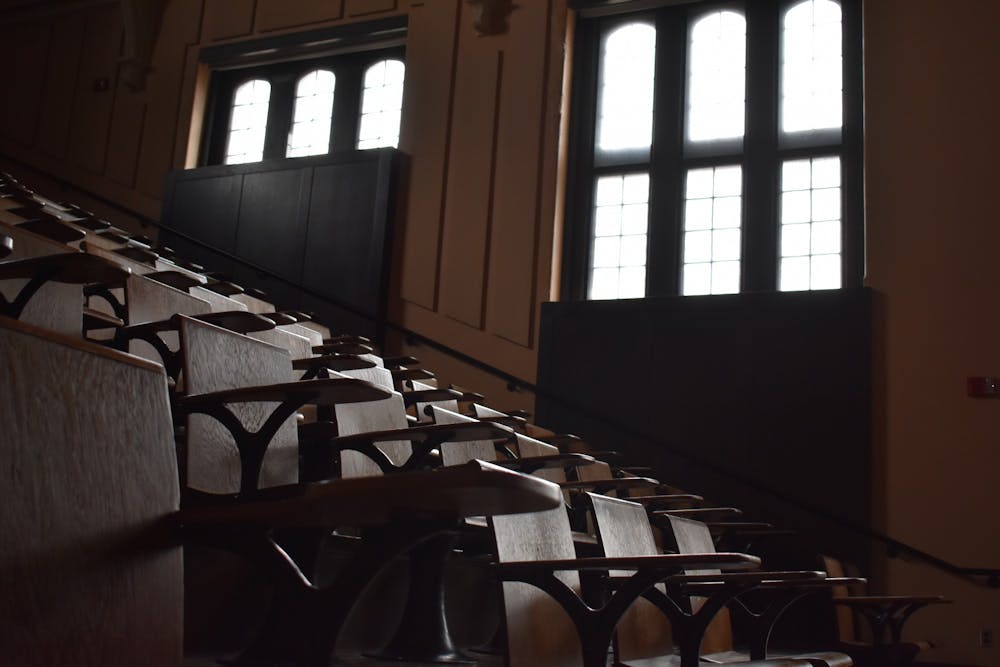I remember the first time I heard the phrase “imposter syndrome.” It was at one of the orientation events at the beginning of my freshman year, but as a newcomer to Princeton, everything else around me was so exciting that that new term flew over my head.
I remember the first time I felt like an imposter. It was in MAT 100, and I had just failed the first quiz. Everyone told me to take this class because it was “Foundations of Calculus,” but I still struggled with it. McGraw did not even offer tutors specific to MAT 100 because it’s assumed that the material is digestible. I walked to my dorm from Fine Hall with tears streaming down my face, believing that this singular math quiz would determine the rest of my academic journey.
This was the first time I truly felt like I had no reason to be at a school like Princeton — if everyone said this was supposed to be the “basic” and “easiest” math class at the University, then why did I have any business studying here?
At a school like Princeton, it’s easy to feel overwhelmed by the accomplishments of our peers. It’s such a privilege to be surrounded by some of the smartest, most hardworking people in the country, but that privilege comes with a price.
Imposter syndrome, defined as a “psychological pattern that causes people to doubt their successes, perceive themselves as terrible at things they’re great at, and experience unsettling fears of being exposed as an impostor,” is a little voice that nags each and every one of us. It’s not necessarily about performance in classes; it can also pertain to how productive you are in a day, how much work you can finish in a short amount of time, or even how little you sleep a night.
I had not felt like an imposter at Princeton since that moment, until the COVID-19 pandemic came.
After three semesters of online learning, I feel more burnt out than I ever have before, like I do not belong at Princeton. Burnout among college students has been extremely prevalent during the pandemic, as some of the most important parts of college have been absent from collegiate life. Feeling like every day is the same, with only a two day “spring recess,” has taken a toll on every student and has made more of them doubt if they’re meant to be Princeton students. Even though I’m living in the same zip code as the University, I feel more disconnected from it than ever.
I hope that, moving forward, the University realizes the toll the pandemic has taken on students and offers more mental health resources. I hope that imposter syndrome is recognized as one of the biggest problems students are currently facing and that a greater effort is made to combat it. The recent suicide of first-year Yale student Rachael Shaw-Rosenbaum is a tragedy; the University should realize that putting students’ mental health first is not something they can just “check off the box” for — it is a necessity.

At a time when students, including myself, find themselves questioning their validity, high-achieving universities should emphasize the importance of rest instead of adding to students’ stress.
To the great Class of 2025, the class with the lowest acceptance rate in history, know that you are here because you belong here. You made it here during times when everyone has been questioning themselves. I’m sure at some point you’ll feel how I did in my MAT 100 class or how I’ve felt at times during the COVID-19 pandemic, but remember that you were accepted during the most selective year for a reason. We cannot wait to have you here.
Maisie McPherson is a sophomore in the History department from Dana Point, Calif. She can be reached at maisiem@princeton.edu.









